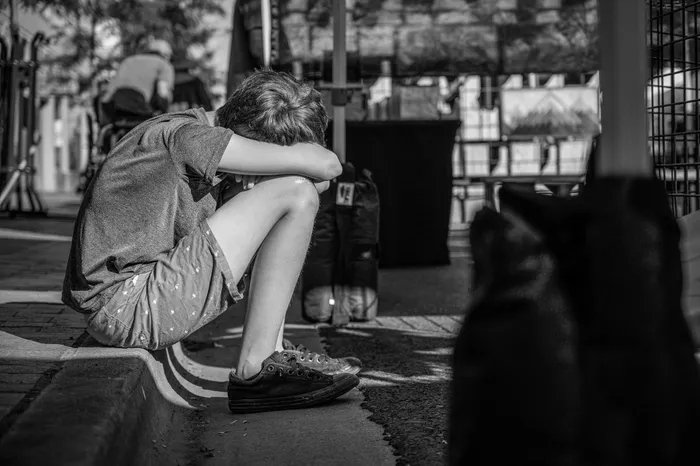Psychiatrist unpacks why teens need more mental health support urgently

Young people in South Africa are struggling with their mental health. Picture: Brett Sayles/Pexels
Young people in South Africa are struggling with their mental health. Some are turning to drugs or even ending their own lives because of the stress they’re under.
As we unpack this worrying trend, experts at the South African Depression and Anxiety Group are raising the alarm: way more kids are dying by suicide each year.
It’s now the thing that kills the third-most kids between 15 and 24, just behind accidents and murder.
About 9% of all teenage deaths are because of suicide. What’s shocking is that it’s especially girls under 35 who are more likely to take their lives, and the numbers are highest for those from 15 to 19 years old.
When we look at suicide attempts, it turns out that while more girls try to end their lives, boys are more likely to die. That’s because boys often use guns or hang themselves, which are violent ways to go.
Girls are more likely to try by using too much medicine or taking poisonous stuff.

A lot of this boils down to depression. Usually, when teens feel depressed, it’s something that doesn’t last too long – being sad, lonely, or upset is part of life.
But if someone doesn’t notice or treat depression, it can end up being deadly. In fact, one out of every three people who die by suicide has tried it before.
Before Teen Suicide Prevention Week, Odayar offers insights into the vulnerability of adolescents, saying: “Even in the best of circumstances, adolescence and the transition from childhood to adulthood is a vulnerable phase of development.”
“In the past five years, data suggests that adolescent mental health has been deteriorating worldwide with high rates of depression, anxiety, and trauma-related outcomes including substance abuse,” Odayar said.
Many families might not want to think about the idea of teenagers or young adults ending their own lives, and they might not realise that changes in behaviour could be a sign of mental health problems.
When young people are dealing with anxiety, depression, or other emotional and mental health issues, they often find it hard to talk about it. Sometimes, they might feel embarrassed to speak up about what they’re going through to their parents, other grown-ups, or even their friends.
“To this day, there is still unfortunately sometimes a stigma attached to mental health, and this can result in young people feeling distressed and not seeking help.
“Given the high incidence of suicide in this age group, I would urge families to check in with the younger generation and ask them about how they are coping in a supportive, sensitive way.”
“In the fast pace of day-to-day life, it is all too easy to lose touch with young people – even if they are living under the same roof. Early detection is key to preventing suicide. Parents, please talk to your children and take notice of them – no matter how busy you may be,” Odayar said.
Common symptoms to be on the lookout for
Social withdrawal, changes in eating or sleeping patterns, and acting out in ways that seem out of character can indicate potential cause for concern, as mental illness is picked up by those closest to them who notice changes in the person’s behaviour.
“These warning signs suggest the need to seek professional help. A young person talking about death or suicide is even more urgent and should never be ignored, dismissed or punished.
“While there are not always noticeable signs of a young person’s suicidal intention, as a society, we need more awareness and less stigma to help adolescents and teenagers find mental health support to help prevent such tragedies wherever possible,” Odayar said.
Helping teenagers who are experiencing depression involves a multi-faceted approach beyond simply recognising common symptoms.
Here are several ways you can support adolescents dealing with depression:
Open communication
Have a trusting relationship with your child so they feel safe to express their thoughts and feelings without fear of judgment.
Education
Educate them and yourself about depression to better understand the condition and lessen the stigma.
Support groups
Suggest joining support groups where they can meet others facing similar challenges.
Healthy lifestyle
A healthy lifestyle shouldn’t be reserved for weight management alone. Encourage regular exercise, proper nutrition, and enough sleep, as these can have positive effects on mental health.
Engage in activities
Encourage participation in activities that interest them, such as sports, arts, or hobbies, to provide an outlet for expression and achievement.
Limit screen time
Limits on screen time and on social media. Social media can contribute to negative self-comparison and isolation.
Positive reinforcement
Provide positive feedback and recognition for achievements and efforts, no matter how small.
Family therapy
It might be helpful to consider family therapy to address dynamics that may affect the teenager’s mental health.
Medication
Help them understand that in some cases, medication may be necessary and helpful, and it should be considered under professional guidance.
Safety planning
Develop a safety plan if there are any concerns about self-harm or suicidal thoughts, including emergency contacts and steps to take in a crisis.
∎ In any mental health emergency, or for advice in accessing mental health care for yourself or a loved one, reach for support. Netcare Akeso offers a 24-hour crisis line on 0861 435 787.
Trained counsellors are available to talk to without judgement and can guide you on options for assistance. The South African Anxiety and Depression Group (Sadag) also provides a 24-hour suicide crisis helpline on 0800 567 567.